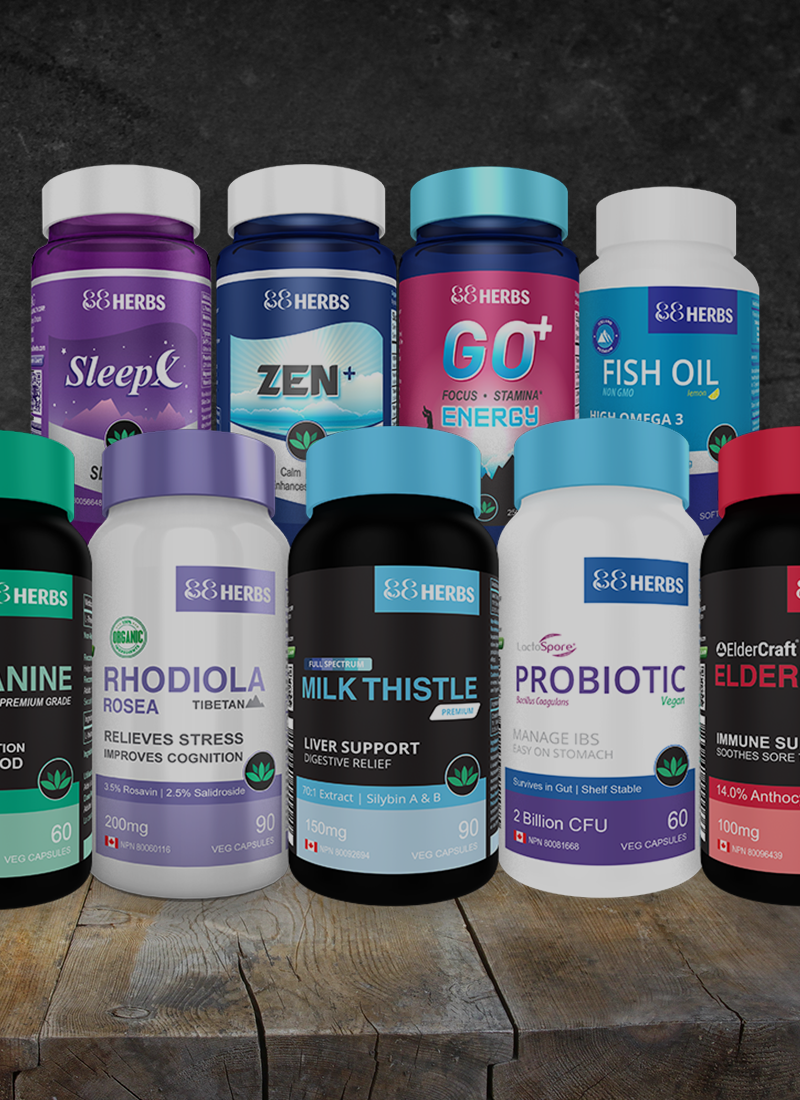Fish Oil – How to Choose the Best Quality
There are so many brands out there, and so much misleading information regarding what constitutes high quality fish oil. Here we take an in depth look at how exactly to select a fish oil supplement that is safe, high in quality, and effective. Read through this. Some of these points may be much less obvious than you think…
What you need to understand and what to look for:
Summary:
- Extremely low in heavy metals, PCB’s, and other toxins
- High in omega 3’s (specifically DHA and EPA)
- In concentrated “Triglyceride” form – not synthetic “Ethyl Ester” form
- The type of fish and where it is from
- Sustainability
- Flavored with natural lemon – No aftertaste or fish burps
- Low oxidation
1. Make sure the fish oil is extremely low in heavy metals, PCB’s, and other toxins
This is very important. If you are taking a fish oil which is high in any of these toxins, it is much worse than not taking anything at all.
We know the oceans are extremely polluted from continuous industrial dumping. Unfortunately, our fish live in these waters, and these fish become very contaminated with mercury, lead, cadmium, and even PCB’s.
Large fish, which are the highest on the food chain and generally quite tasty to eat, are often sadly the highest in mercury and other toxins.
Here is a pretty extensive list of fish and their mercury levels
The GOED (Global Organization for EPA and DHA Omega 3’s) sets international standards for a wide variety of high quality fish oils. You can see their standards here
It is also important to note that you should ensure companies take the extra series of steps required to remove any remaining mercury and other toxins from the raw fish oil. It is not enough to just look at the list of fish and choose an oil based on that list alone. It is possible to distill out the vast majority of the remaining toxins from the raw oil, but this process costs more and a lot of brands don’t do it.
***We exceed these GOED standards, often by a factor of more than 10 to 20, when it comes to ensuring the lowest mercury, lead, cadmium, and PCB levels. We take this extremely seriously and want to make sure you are getting absolutely as little as possible of these toxins.
***Mercury consumption is harmful to everyone. It is even more harmful to pregnant and nursing mothers.
Takeaway: Look for a brand you trust which also does 3rd party lab testing. Also look for the source of the oil. We use the oil from fresh anchovies in the clean waters of Iceland. Anchovies are known to be extremely low in mercury and other toxins. We also use safe and natural processes to distill and remove any remaining toxins further. There is virtually zero of these toxins in our products.
Remember: The amount of mercury won’t be listed on any label. It’s not an ingredient. So you need to do your homework and look at where the oil is coming from, and how it’s being processed.
2. Make sure the fish oil is high in overall Omega 3’s, as well as high in both DHA and EPA.
Ok, so we know that high quality fish oil has a wide variety of health benefits.
But why?
Answer: Fish oil’s main benefits largely come from the high levels of omega 3 fatty acids – specifically DHA and EPA. Other high omega 3 oils like flax oil for example have very low levels of DHA and EPA. Note: Flax oil is high in ALA (another type of omega 3), but the ALA converts to DHA very poorly.
So for fish oil, we’re really looking for high DHA and EPA to get most of the benefits.
A lot of fish oil on the market (most of it to be honest) is labeled “Fish Oil” in big letters on the bottle. The problem is that it’s often a blend of fish oil mixed with other inferior oils, or it is just a cheaper type of raw fish oil which is low in “the good stuff”, namely DHA, EPA, and other Omega 3 fatty acids.
Remember, it is cheapest and easiest for a company to to sell raw fish oil which is very low DHA and EPA. This defeats the purpose of buying fish oil in the first place.
Note: Any type of raw fish oil is actually relatively low in DHA and EPA. If you want to get high levels of DHA and EPA you need to process the oil to extract or “concentrate” the DHA and EPA into much higher levels. As noted above, if this processing is done well, it is also possible to remove essentially all of the mercury and other heavy metal toxins that may have been in the raw oil in the first place.
Each capsule of our fish oil for example, has 240 mg of DHA, 340 mg of EPA, and 620 mg of total Omega 3 fatty acids. We also mix it with a little bit of natural lemon oil (more on that below) to make it taste and smell a little better, and help eliminate any “fish burps” or bad aftertaste.
There are many studies showing the benefits of DHA and EPA. Here is a good list of benefits, including links to studies.
Most often, DHA and EPA benefits are measured together since they are usually both present in fish oil. Here is a interesting study showing the separate benefits of DHA vs EPA
3. Look for the fish oil to be in the natural “triglyceride form” and not the “ethyl ester” form.
The first 2 points may have been somewhat obvious, but here is where it gets interesting. What is the “triglyceride form” and why is it important when choosing a fish oil?
Most people don’t even know to look at this factor at all. It usually isn’t in the marketing material or anywhere on the labels. Most people however do know that if your doctor tells you that you have high triglycerides in your blood, then that is a bad thing. This is completely different though.
As we mentioned in section 2 above, we need to have the raw fish oil concentrated to make sure it has a high percentage of DHA and EPA. The challenge is, however, that during the first stage of the concentration process, the fish oil will change from its natural form (triglyceride) into a synthetic form called an ethyl ester.
It is possible, but more expensive to convert concentrated fish oil back into the triglyceride form. Unfortunately since most consumers don’t know to look for this, it leaves a financial incentive for companies to leave the fish oil in the synthetic ethyl ester form and save money.
When we did our own research, we decided to pay the extra money to put our fish oil in the triglyceride form since it really is superior for absorption, and we’re always looking for absolute top quality.
The triglyceride form of fish oil has been shown to absorb much better in the body than ethyl ester form. It is also a form found in nature.
What is triglyceride form?
Fish oil in triglyceride form is composed of 3 fatty acids attached to a glycerol backbone. It is found in nature in almost all fats and oils from plants and animals.
What is ethyl ester form?
Fish oil in ethyl ester form are simply one fatty acid attached to one ethanol molecule. Ethyl esters are not found in nature, but are instead made synthetically.
Here is a famous study showing the superior bioavailability of the triglyceride form vs the ethyl ester form. This was measured using the omega 3 index – a measure of DHA and EPA in the actual blood. (Here is more info on the importance of the omega 3 index for cardiovascular health)
Here is another study showing the superior bioavailability of the triglyceride form.
Takeaway: Triglyceride form is more natural, and absorbs significantly better than ethyl ester form. Look for triglyceride form on the label. If you don’t see it mentioned, it is almost certainly in ethyl ester form since the vast majority of concentrated fish oil on the market is in the ethyl ester form, and it almost always goes unlabeled.
Note: Our fish oil is in a triglyceride form that even exceeds the GOED standards.
4. Look for your fish oil to be flavored with natural lemon oil and put in quality capsules that won’t break in the bottle. (Also: why caps may be better than liquid)
Ok, this last point isn’t entirely necessary, but it is certainly worth mentioning. Fish oil by itself smells like, well, fish oil. It isn’t the most pleasant thing to smell, taste, or burp up. People won’t love it on your breath either.
This is why we’ve taken steps to make our fish oil taste and smell as good as possible.
We used natural distillation processes to purify the fish oil and deodorize it. Then we added natural lemon oil to both the fish oil itself, and put lemon oil into the capsule material. Our fish oil smells like lemon inside the bottle, and it leaves a very pleasant lemon fresh taste with no fishy taste.
5. Make sure the fish oil is in a form that won’t oxidize quickly or go rancid
Some people have argued that fish oil in a glass bottle is superior to the capsules since you are getting fish oil only and not ingesting any capsule material, but we have found that our high quality capsules are actually better overall.
The reason fish oil capsules are better than fish oil in a glass bottle is that fish oil can go bad or rancid very quickly (even in the fridge or freezer) if it is exposed to any oxygen at all. So if your fish oil is in a glass bottle, then as soon as you open the bottle to take your first dose, the rest of the bottle will continue to be exposed to oxygen and oxidize more quickly. One caveat is that the fish oil capsules must be of high quality
Our capsules make the fish oil last significantly longer (literally years longer) because they keep the oil completely away from any oxygen. So when you take our capsules you are getting extremely fresh oil every time.
Another benefit of the triglyceride form of the fish oil is in this department. Fish oil in ethyl ester form oxides and goes rancid far more quickly than fish oil in triglyceride form. Here is a study showing difference in oxidation rates between ethyl ester and triglyceride form.
A few final points:
We also made the capsules 1 gram each. If the caps are too large, some people have trouble swallowing them. You don’t want fish oil stuck in your throat. So that is something else you may wish to pay attention too.
In addition, we made sure the fish oil is in very strong and high quality capsules. You never want fish oil capsules to break inside the bottle. You’d be surprised how poor some of the lower quality brands are in this department. One broken capsule will ruin the entire bottle.
Our premium fish oil is from anchovies in Iceland. It is non-GMO and from a clean, sustainable source.
We spent 2 years researching and sourcing the best fish oil product we could possibly get. We paid attention to every detail and we believe you will absolutely love it and really notice the wide range of health benefits.
Here is our 88Herbs premium grade fish oil from Iceland.

Andrew Best
Cofounder - Director of R&D
Andrew educates consumers about the latest scientific research in the natural health supplement field.


